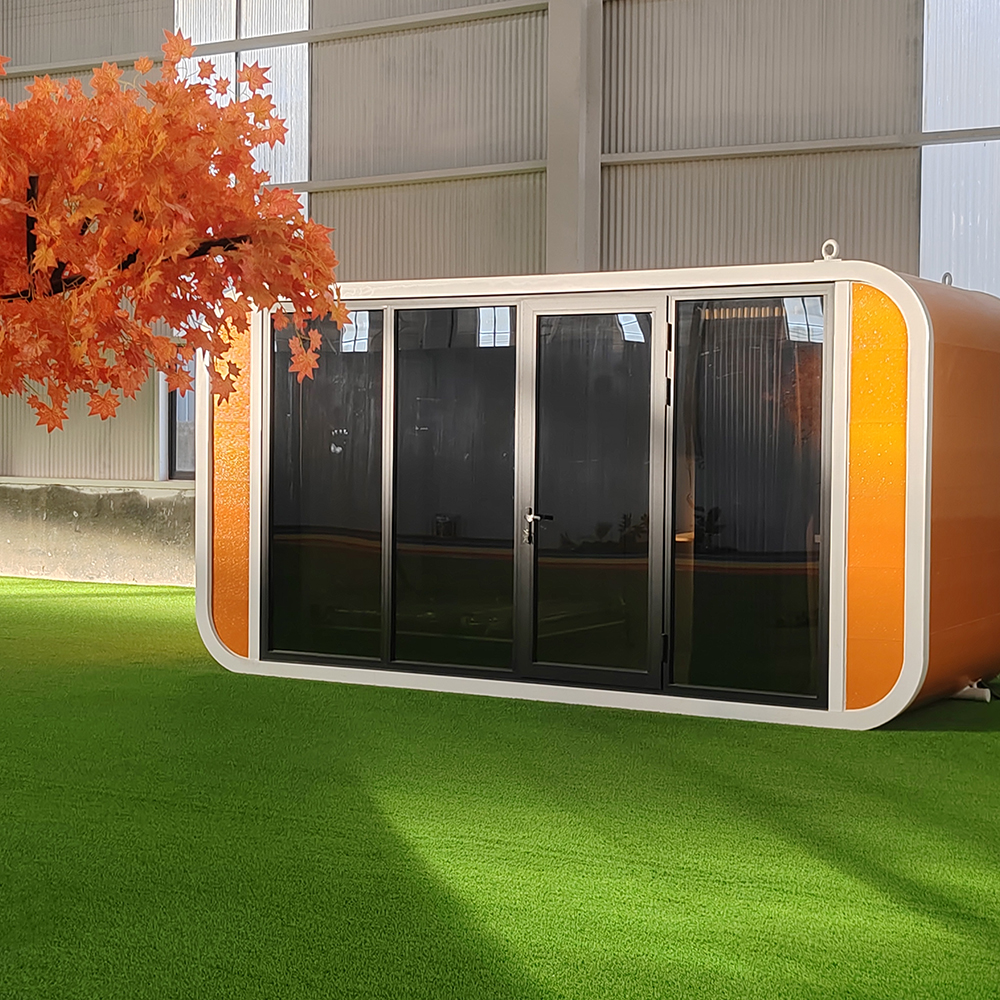-
E-mail
Austin120521@outlook.com -
E-mail
sales@jujiuhouse.com -
Telephone
+86-17864099991 -
Telephone
+86-17854044442
- Chinese
- French
- German
- Portuguese
- Spanish
- Russian
- Japanese
- Korean
- Arabic
- Irish
- Greek
- Turkish
- Italian
- Danish
- Romanian
- Indonesian
- Czech
- Afrikaans
- Swedish
- Polish
- Basque
- Catalan
- Esperanto
- Hindi
- Lao
- Albanian
- Amharic
- Armenian
- Azerbaijani
- Belarusian
- Bengali
- Bosnian
- Bulgarian
- Cebuano
- Chichewa
- Corsican
- Croatian
- Dutch
- Estonian
- Filipino
- Finnish
- Frisian
- Galician
- Georgian
- Gujarati
- Haitian
- Hausa
- Hawaiian
- Hebrew
- Hmong
- Hungarian
- Icelandic
- Igbo
- Javanese
- Kannada
- Kazakh
- Khmer
- Kurdish
- Kyrgyz
- Latin
- Latvian
- Lithuanian
- Luxembou..
- Macedonian
- Malagasy
- Malay
- Malayalam
- Maltese
- Maori
- Marathi
- Mongolian
- Burmese
- Nepali
- Norwegian
- Pashto
- Persian
- Punjabi
- Serbian
- Sesotho
- Sinhala
- Slovak
- Slovenian
- Somali
- Samoan
- Scots Gaelic
- Shona
- Sindhi
- Sundanese
- Swahili
- Tajik
- Tamil
- Telugu
- Thai
- Ukrainian
- Urdu
- Uzbek
- Vietnamese
- Welsh
- Xhosa
- Yiddish
- Yoruba
- Zulu
- Kinyarwanda
- Tatar
- Oriya
- Turkmen
- Uyghur

China folding house container
The Use and Innovation of Folding Container Houses in China
In recent years, the concept of folding container houses in China has attracted substantial attention. These structures combine versatility with practicality, offering unique solutions in housing. However, there's a common misconception about their application and efficiency. Many believe they're just a trend, but the experience tells a different story.
Understanding the Appeal of Folding Container Houses
The allure of a folding house container lies in its adaptability. From urban environments to remote areas, they meet diverse needs effortlessly. Having been in the industry for years, what strikes me is how these units can be customized to match varied demands, whether for commercial use or personal dwellings.
Take, for instance, projects led by Shandong Jujiu Integrated Housing Co., Ltd., particularly their initiatives across various provinces. Their experience in developing integrated housing solutions demonstrates the practicality these containers offer. The ability to swiftly set up and dismantle, paired with durability, makes them an attractive option.
But there’s more beneath the surface—understanding the materials and craftsmanship involved shows just how sophisticated these structures can be. This isn't just a fad; it's a practical response to contemporary living challenges.
Insights From Real-World Applications
One might wonder about the actual instances of success with folding container houses. A memorable project involved setting up emergency housing after a natural disaster in southern China. The rapid deployment of these units provided immediate shelter, showcasing their potency in crisis management.
Walking through the setup phase with teams from companies like Shandong Jujiu, we’ve seen firsthand the ease of installation. The simplistic yet robust design allows quick assembly, vital when timing is critical. Moreover, this project underscored the importance of having quality materials and design foresight.
Yet, challenges exist. Weather resistance and insulation are ongoing concerns. Companies are continually innovating, but it requires ongoing research and adaptation, which is where Shandong Jujiu’s focus on R&D becomes pivotal.
Addressing Environmental and Economic Concerns
Environmental sustainability is often at the forefront of debates surrounding any new construction trend. The folding container houses have a reduced carbon footprint compared to traditional building methods. This was evident in projects prioritizing eco-friendly approaches, leveraging recycled materials wherever possible.
Economically, these structures offer significant cost savings. The reduction in labor and resource usage is considerable. For a company like Shandong Jujiu, optimizing these factors aligns with their broader business goals—efficient, cost-effective production without compromising quality.
However, these benefits must be communicated effectively to potential consumers. Many remain skeptical of the initial upfront costs, not realizing the long-term savings and benefits. Awareness and education in the market are crucial.
Overcoming Design and Cultural Barriers
A fascinating aspect of integrating folding container houses into mainstream housing involves overcoming design prejudices. Traditional cultural aesthetics sometimes clash with modular designs. But innovation in design, such as customizable exteriors and interiors, is bridging this gap.
Companies like Shandong Jujiu are at the forefront of these customizations. Through their website, https://www.jujiuhouse.com, they showcase various projects highlighting different stylistic possibilities, giving these containers a home-like appeal.
As these designs gain acceptance, it reflects a shift in consumer mindset—recognizing functionality without sacrificing comfort or style. It's a gradual but notable change in perception.
The Future of Folding Container Houses in China
Looking ahead, the role of China folding house container units seems poised to expand. Whether through charitable housing initiatives or innovative urban planning, their potential is undeniable. Industry players like Shandong Jujiu are leading this evolution.
The real test will be how these homes adapt to technological advancements. Smart integration, enhanced energy efficiency, and better resource management are areas ripe for exploration.
In conclusion, folding container houses in China are much more than a fleeting trend. They represent a transformative approach to architecture and urban planning, with significant implications for future living spaces. These structures challenge traditional ideas while offering practical solutions to modern challenges.
Related products
Related products
Best selling products
Best selling products-
 Movable Prefabricated Container House Villas Modular Portable Homes 1 Bedroom Container House Offices Apartments
Movable Prefabricated Container House Villas Modular Portable Homes 1 Bedroom Container House Offices Apartments -
 Customized Expandable Container House Holiday Home Folding Prefab Container House with Bathroom and Kitchen
Customized Expandable Container House Holiday Home Folding Prefab Container House with Bathroom and Kitchen -
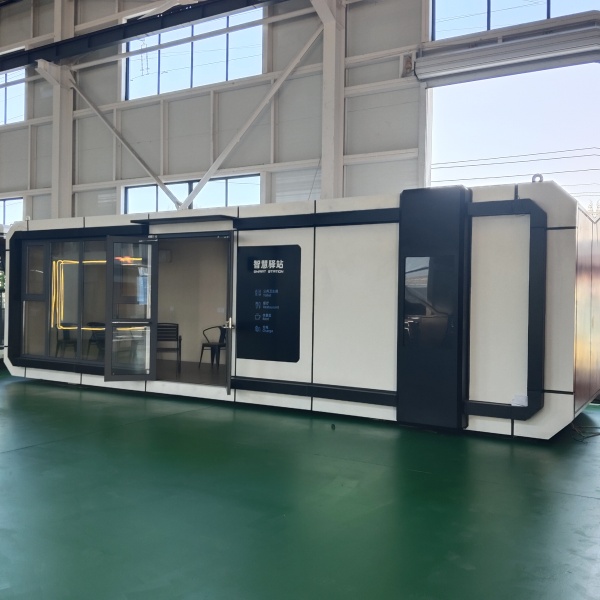 Modular modern movable apple cabins, customized high-end folk houses and portable bedrooms, delivered as a whole
Modular modern movable apple cabins, customized high-end folk houses and portable bedrooms, delivered as a whole -
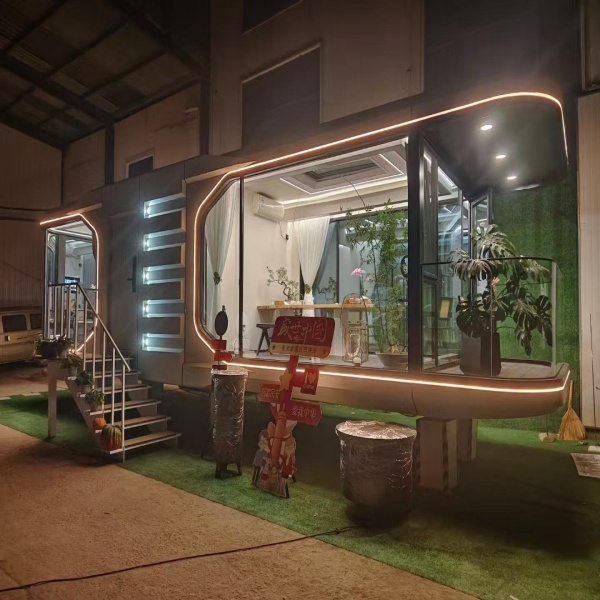 Outdoor ecological capsule rooms, luxury pods, space capsule hotel rooms, prefabricated space capsules, container houses
Outdoor ecological capsule rooms, luxury pods, space capsule hotel rooms, prefabricated space capsules, container houses -
 Hot-selling foldable container houses, expandable prefabricated houses, suitable for office or living use, with fast delivery.
Hot-selling foldable container houses, expandable prefabricated houses, suitable for office or living use, with fast delivery. -
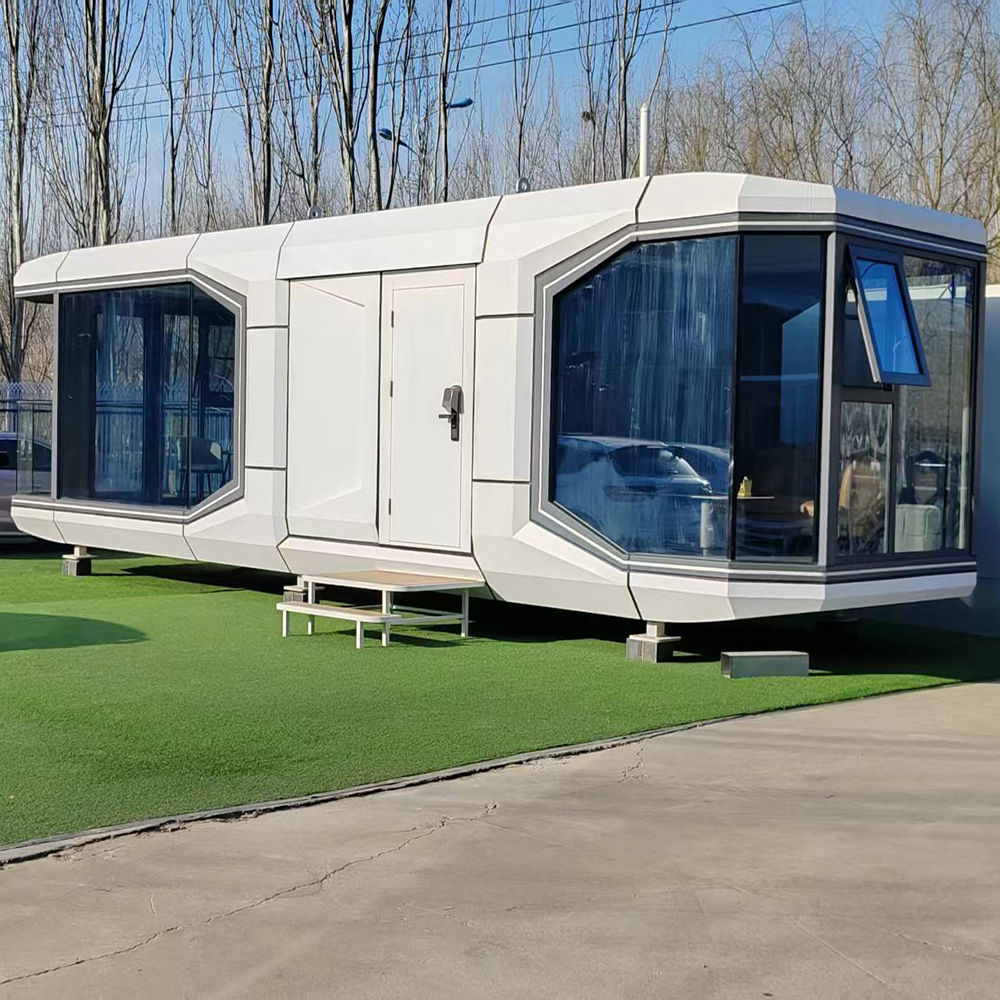 Luxury High Quality 2 Bedroom Container Home Prefabricated Steel Space Capsule for Office Shop Hotel or Outdoor House
Luxury High Quality 2 Bedroom Container Home Prefabricated Steel Space Capsule for Office Shop Hotel or Outdoor House -
 A container house with a terrace and double-wing folding design, suitable for various purposes such as offices, meeting rooms, living rooms, etc.
A container house with a terrace and double-wing folding design, suitable for various purposes such as offices, meeting rooms, living rooms, etc. -
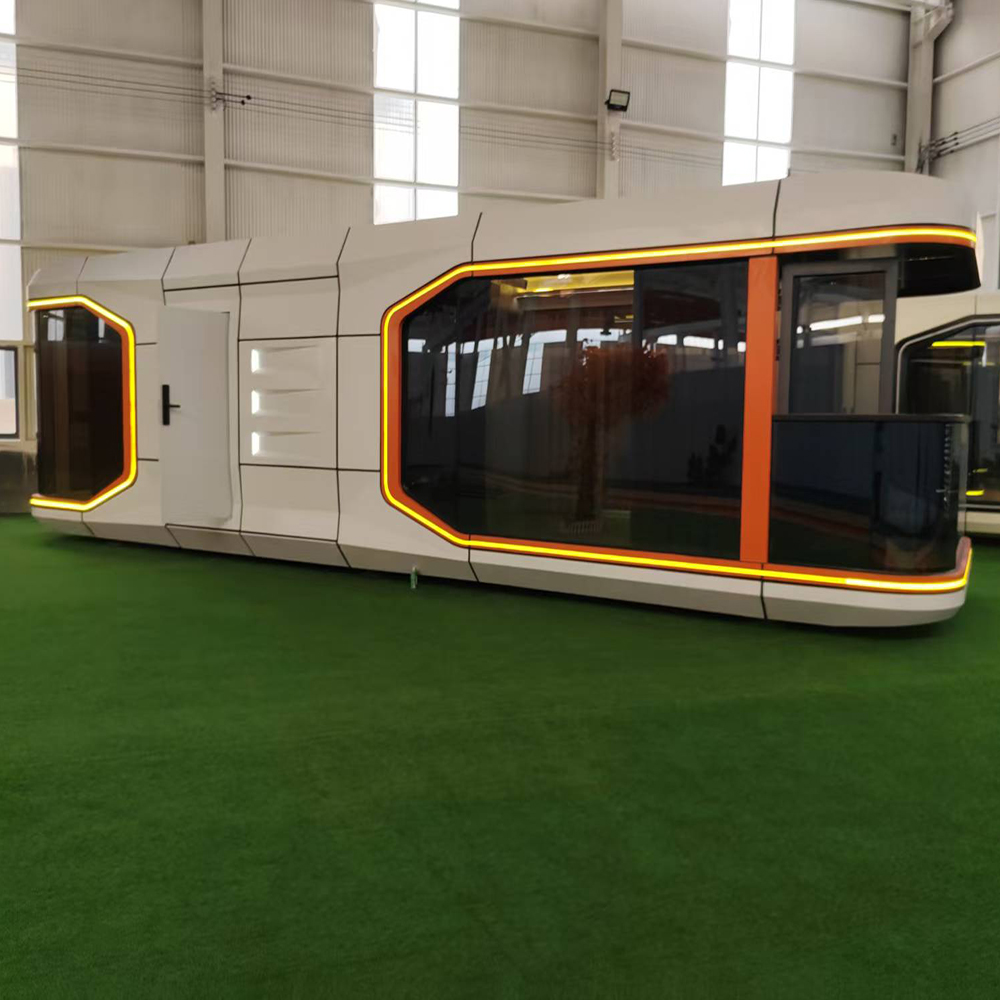 Standard Modern Camping Pod Space Prefabricated Portable Mobile Capsule Room Hotel Bathroom Prefabricated Spaceship House
Standard Modern Camping Pod Space Prefabricated Portable Mobile Capsule Room Hotel Bathroom Prefabricated Spaceship House -
 Dual-Wing Folding Container House: Fast Assembly, Space-Saving & Multi-Scene Adaptable
Dual-Wing Folding Container House: Fast Assembly, Space-Saving & Multi-Scene Adaptable -
 High-quality Double-wing Folding Container House with Doors and Windows, Insulated Walls, Suitable for Various Scenarios.
High-quality Double-wing Folding Container House with Doors and Windows, Insulated Walls, Suitable for Various Scenarios. -
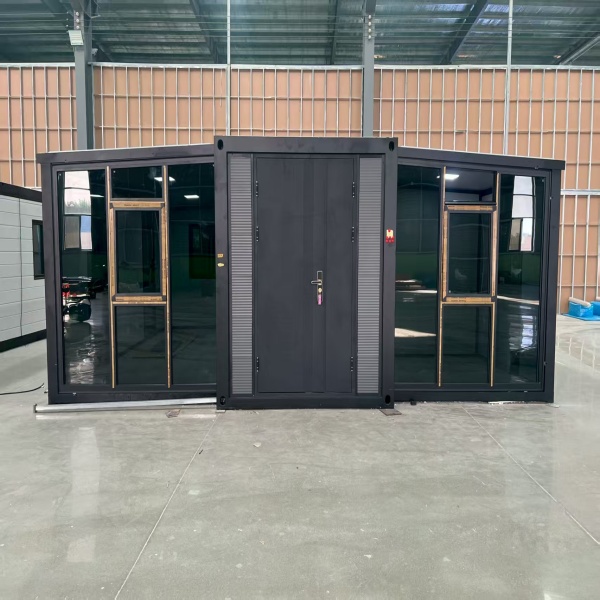 Customizable Office Mobile Home with Flat Roof and Double Wing Expansion Box, Convenient Container
Customizable Office Mobile Home with Flat Roof and Double Wing Expansion Box, Convenient Container -
 Customized Two Wing Folding Expandable Container House
Customized Two Wing Folding Expandable Container House
Related search
Related search- space cabin capsule
- folding house container home
- China portable fold out container house
- China expanding container house
- prefabricated house container
- modular prefab prefabricated shipping container house home
- prebuilt container house
- Buy apple cabin modular house
- fold out tiny home
- Buy modular container expandable prefabricated house










